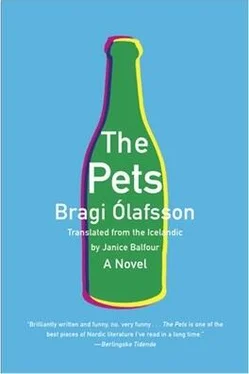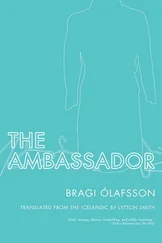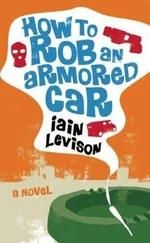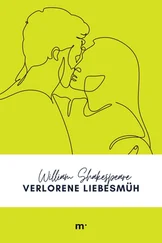Bragi Ólafsson - Pets
Здесь есть возможность читать онлайн «Bragi Ólafsson - Pets» весь текст электронной книги совершенно бесплатно (целиком полную версию без сокращений). В некоторых случаях можно слушать аудио, скачать через торрент в формате fb2 и присутствует краткое содержание. Год выпуска: 2008, Издательство: Open Letter, Жанр: Современная проза, на английском языке. Описание произведения, (предисловие) а так же отзывы посетителей доступны на портале библиотеки ЛибКат.
- Название:Pets
- Автор:
- Издательство:Open Letter
- Жанр:
- Год:2008
- ISBN:нет данных
- Рейтинг книги:5 / 5. Голосов: 1
-
Избранное:Добавить в избранное
- Отзывы:
-
Ваша оценка:
- 100
- 1
- 2
- 3
- 4
- 5
Pets: краткое содержание, описание и аннотация
Предлагаем к чтению аннотацию, описание, краткое содержание или предисловие (зависит от того, что написал сам автор книги «Pets»). Если вы не нашли необходимую информацию о книге — напишите в комментариях, мы постараемся отыскать её.
Pets — читать онлайн бесплатно полную книгу (весь текст) целиком
Ниже представлен текст книги, разбитый по страницам. Система сохранения места последней прочитанной страницы, позволяет с удобством читать онлайн бесплатно книгу «Pets», без необходимости каждый раз заново искать на чём Вы остановились. Поставьте закладку, и сможете в любой момент перейти на страницу, на которой закончили чтение.
Интервал:
Закладка:
“What’s the matter, aren’t you happy here, Armann?” Havard asks, as if he is addressing a little child. “Didn’t I give you coffee and cognac. You had a cigar too, and can have another if you want. You just came here to fetch your glasses. Don’t you think it is a bit much to suddenly expect food?”
Good fellow, I think to myself and mentally thank Havard for putting Armann in his place, even though I suspect it was done to impress Greta.
“Havard, my good fellow,” Armann says, “I don’t mean to sound ungrateful for what you have offered here. .”
“What Emil has offered,” Havard butts in.
“Yes, what our friend Emil has offered here,” Armann says and is again interrupted by Havard, who suddenly starts singing:
“ Where the Lord provides / blessings come from above . .”
Greta laughs; she seems to recognize the hymn.
“I am not talking about a four-course meal or anything like that,” Armann adds. Havard carries on singing:
“ Where holy words are recited / there is heavenly peace and love .”
These religious words don’t seem to make any impression on Armann; he is more interested in finishing what he is trying to say: “I was only wondering if Emil had a little something in the freezer that we could heat up. It is not very sensible to drink on an empty stomach, you know that, Havard.”
I’m not so sure that Havard does know it. At Brooke Road his breakfast consisted of two or three large cans of Carlsberg Special Brew, and normally he didn’t eat anything solid until later in the day, out of dire necessity. He doesn’t seem to bother answering Armann, and leaves it to Greta to find a solution to the problem.
“Why don’t you just run out to the sweet shop?” she suggests.
“Sweet shop, you say?” He is upset; he hadn’t expected this kind of reaction. “Once it was called a confectioner’s, if I remember correctly.”
There is a knock on the front door.
“Have a look out the window and see who it is!” Havard calls out in a whisper, no doubt to Greta, and before they find out who it is, there is another knock.
“I don’t think it’s Emil,” I hear Greta say in the same kind of loud whisper.
“Wait a moment then,” Havard says in a warning tone. “Don’t open straight away.”
I hear him go into the living room. Armann asks him what he is doing; Havard signals to him to keep quiet and comes, almost running, into the bedroom, where he puts something down on the floor near the toy box. The knocking continues. Havard rushes out again; it sounds as though he slides on the floor when he goes into the hall. He pauses to catch his breath before he opens the front door.
The person outside — clearly a man, judging from his voice — says something I can’t hear and Havard answers:
“Yes, that’s me.”
I can feel cold, fresh air flow in along the hall and into the room. I recognize Jaime’s voice straight away; he asks if I have come home yet, and Havard says no but why doesn’t he come in.
Although I had told Jaime and Saebjorn about my stay in London with Havard, I have no idea if they remember his name. I got to know Saebjorn shortly after I came home from that trip and Jaime about two years ago, so we have never really spoken about him.
Jaime says good evening to Greta and Armann and they return his greeting. I’m impatient to find out what it is that Havard ran into the bedroom with before he opened the door, and I wriggle a little in the direction of Halldor’s toy box in order to get closer to it. I pull it carefully in my direction with my left foot; the dust gets stirred up with each movement I make and settles on my face like a cement.
“Are you the Spaniard?” Armann asks cheerfully, as if they are waiting to complete a group and only the Spaniard is missing. “We are here, Emil’s flight companions, all we need is our pal, Emil.”
“Were you on the plane with him?” Jaime asks.
“Yes, we were,” Armann answers proudly. “Not him though,” he adds. No doubt he means Havard, who takes over:
“I was just coming from Sweden. You know: Sverige. Volvo. Abba.”
“So everyone has come from abroad, it seems,” Jaime says — I can just imagine his boyish smile — and then he corrects Armann: “I’m not really Spanish, I come from Chile.”
“That’s even better,” Armann says. “It’s not every day one talks to — how is it again— un chileno , isn’t it?”
“ Si: un chileno . You have obviously learned some Spanish.”
“No, I haven’t,” Armann answers, almost as if Jaime’s praise was an insult.
Behind the toy box I discover the sailing ship and the book. I don’t have to wonder much about Havard’s reason for removing the objects from the living room; of course he doesn’t want my friends to find out who he is, at least not while he is the host here (if one can speak in those terms). He naturally assumes that I have told them all about him, and he hopes that they won’t recognize him. With some difficulty I manage to reach the book with my foot, but I get a terrible pain in my hip; it feels like I’ve strained something, which wouldn’t surprise me after lying here for so long. Normally I would shout out in pain, but with the discipline and concentration I have been forced to master the past few hours, I‘m able — admirably I think — to suppress the shout.
It feels rather special to be handling the book again. I think that Orn paid around five thousand pounds for it. And though he didn’t let me suffer in any way on account of its disappearance from his collection, just the same I suspected all along that Havard sold it for a song in some second-hand bookshop. I put the book on the carpet in front of me and find the first page of the story:
Call me Ishmael .
By removing the letters s, h , and a from the name Ishmael, one is left with the anagram of my name: Imel. And the removed letters form another anagram for the English word ash. I smile to myself. Without intending to take these word games too seriously, I think first of the word cremation and then the thing for which I would almost be ready to give this original edition of Moby-Dick : a cigarette. White, new, and fresh smelling from the carton on the table in the living room. When I glance quickly over the first chapter, I recall the first time I read the book many years ago. As I approach the end of the chapter, my eye pauses automatically at the word horror . I read the whole paragraph and get the feeling that the contents are appropriate at this point in my life:
Not ignoring what is good, I am quick to perceive a horror, and could still be social with it — would they let me — since it is but well to be on friendly terms with all the inmates of the place one lodges in.
All of a sudden there is a sound of breaking glass. I hear Havard swear and then Jaime declines a drink when Havard says that he had intended to give him whisky, but he had just let the glass slip to the floor.
“There are more glasses,” Armann says, but Jaime insists that he doesn’t want anything to drink, he can’t really stop, he has just come to see if I had brought back the CD he had asked me to buy. To tell the truth I am quite surprised; I did buy him a CD — exactly the one he asked for and it took me some time to find it — but I understood that both he and Saebjorn were going to come and have a drink and chat with me this evening. Of course I am aware that I don’t seem to be there, but I think Jaime could at least wait for Saebjorn, who is bound to come any minute now.
“Can’t I offer you a little red wine?” Greta says. I nod on Jaime’s behalf. I can imagine that Greta would like him to stay for a little while; in a way it must give her more hope that I will turn up.
Читать дальшеИнтервал:
Закладка:
Похожие книги на «Pets»
Представляем Вашему вниманию похожие книги на «Pets» списком для выбора. Мы отобрали схожую по названию и смыслу литературу в надежде предоставить читателям больше вариантов отыскать новые, интересные, ещё непрочитанные произведения.
Обсуждение, отзывы о книге «Pets» и просто собственные мнения читателей. Оставьте ваши комментарии, напишите, что Вы думаете о произведении, его смысле или главных героях. Укажите что конкретно понравилось, а что нет, и почему Вы так считаете.
